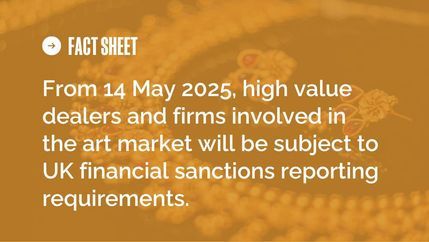- You are here:
- Homepage
- Resource library search
- FAQs: Client Accounting Service Providers
Related resources
Fact Sheet: UK Sanctions Reporting Obligations for High Value Dealers
Under the Sanctions and Anti-Money Laundering Act 2018, the UK Government introduced a new regime of issuing financial sanctions following the UK’s departure from the European Union. Under the Act, businesses specified in the Act have to report to Office of Financial Sanctions Implementation (OFSI) if they suspect they are engaging with a client who is under financial sanctions.
A stark warning on property fraud as man regains possession of stolen home
Fraudsters exploited the vulnerabilities in the property transaction system by stealing a homeowner’s identity and using a fake driving license to set up a bank account in his name to facilitate a sale in 2021. After four years, on 11 March 2025, a County Court finally granted the owner full possession of his home.
Lettings Spotlight: financial sanctions reporting obligations
Letting agency businesses across the UK need to work to a new framework from 14 May 2025 under the Sanctions and Anti-Money Laundering Act 2018, and it is vital that every agent understands the rules and adjusts working practices and systems accordingly. Through our vast network of members, some confusion has been highlighted around the rules, and we have produced resources to navigate the requirements.
Fact sheet: Writing a risk assessment
Under the Money Laundering, Terrorist Financing and Transfer of Funds (Information on the Payer) Regulations 2017 (the MLRs) all Estate Agency Businesses and Letting Agency Businesses with properties that have a monthly rent that is the equivalent to 10,000 Euros or more, must produce a risk assessment.






